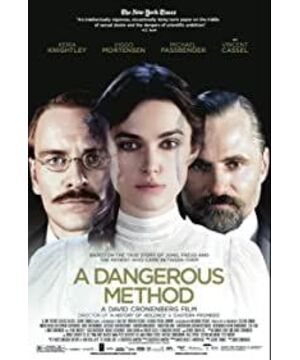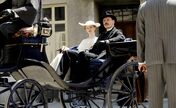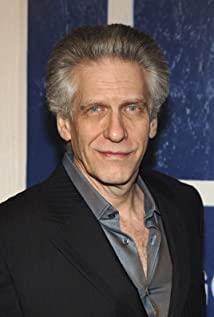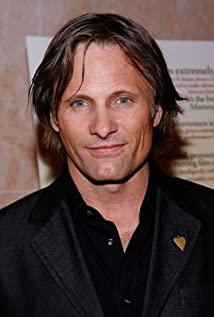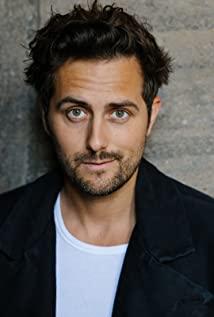1.1 Motivation and the Unconscious
Freud's psychoanalytic theory holds that all behavior is motivated, and that motivation works at the unconscious level. Every human action has a cause and a purpose, which can be discovered by analyzing thought associations, dreams, errors, and other behavioral cues about inner emotions.
Freud initially proposed two basic drives. One of them is related to self-survival (satisfying needs such as hunger and thirst). Another he called the sexual instinct, which is an instinct related to the sexual drive and the continuation of the species.
In Freudian theory, differences in personality are caused by differences in how people treat basic drives. He depicts an endless battle between two distinct parts of the personality -- the id and the superego -- reconciled by the ego.
The I can be seen as the repository of the original drive. It operates irrationally, following impulsive movements and pursuing immediate gratification, regardless of whether the desired behavior is realistic and socially acceptable. The id is governed by the pleasure principle, an unbridled search for satisfaction that can be achieved at any time without regard to its consequences, especially sexual, physical and emotional pleasure.
The superego is a repository of one's values, including socially learned moral attitudes. The superego roughly corresponds to the concept of conscience.
The ego is a reality-based aspect of the ego that mediates the conflict between id impulses and superego needs. The ego represents a person's view of physical and social reality, his rational understanding of the causes and consequences of actions. The ego is governed by the reality principle, which provides realistic choices for pleasure needs.
1.2 Ego Defense
Sometimes the compromise between the id and the superego is like "putting a lid on the id". Extreme desires are excluded from consciousness and remain undetected in the unconscious. Repression is a psychological process of self-preservation so as not to experience extreme anxiety or guilt due to unacceptable or potentially dangerous impulses, desires, or memories.
Repression is the most basic form of self-defense an individual uses to overcome threatening impulses and desires.
Ego defense mechanisms are the mental strategies the ego uses to protect itself in the daily conflict between id conflicts seeking expression and superego needs to deny them. By using self-defense mechanisms, individuals can maintain a satisfactory self-image and a popular social image.
In Freudian theory, anxiety is a strong emotional response to a repressed conflict that is about to emerge in the conscious realm. Anxiety is a red flag: Suppression fails! Red Alert! Freud's theory regards anxiety disorders as the individual's inability to resolve internal conflicts well, that is, conflicts arising from the unconscious and irrational conflicts of the id being suppressed by the superego. The therapeutic goal of psychoanalysis is to restore harmony within the individual's mind, increase the opportunity for the performance of the id, reduce the excessive demands of the superego, and strengthen the power of the ego.
Excessive self-defense can also have negative effects. Self-defense mechanisms are useful, but ultimately self-deception. When people overuse it, it creates more trouble than it solves the problem. It takes a lot of time and mental energy to misrepresent, pretend, and change the unacceptable urge to reduce anxiety is an unhealthy state of mind. The consequence of this is not having the energy to live meaningfully or build satisfying relationships.
Forming a certain identity means that the crisis has been resolved by the end of the teenage phase. Some have achieved identity, while others are still in a state of crisis. Individuals who have not yet acquired identity are more likely to use defense mechanisms.
1.3 Post-Freudian Theory
Jung rejected both Freudian drives and proposed two equally powerful unconscious instincts: the individual's need for creativity and the need for harmony in the whole.
Self-realization is an important part of psychoanalytic therapy in Freudian theory. Jung emphasized that for the self to be fully developed, the individual must accept and integrate all aspects of his conscious and unconscious experience.
1.4 Different Theories Contribute Differently to Understanding Personality
Trait theories provide the components and structure of personality;
psychoanalytic theories provide the engine and fuel;
humanistic theories put people in the driver's seat;
social learning theories provide the wheels Signals and other operating instruments;
Cognitive theory adds various annotations to travel, so that all planning, organization and travel methods conform to the mental map of the choice to achieve goal lock;
ego theory reminds the driver to consider his family background to be responsible for people in the back seat and pedestrians;
2. Dangerous Therapy
2.1 Jung 's wife
used free association and catharsis therapy for Jung's wife during her pregnancy. She paused for a long time in the associative response of family and marriage. Sabina realized that she was subconsciously worried about her husband. Loss of interest in myself and
fear of unforeseen circumstances in the marriage. When she gave birth to a girl, she expressed her thoughts to her husband, and she hoped to give her a boy, and this desire was restrained again and again by natural forces and squeezed in the depths of her heart.
2.2 Sabina
to Sabina, mainly through talk therapy, the analyst's task is to help the patient bring repressed thoughts to consciousness, and to help the patient to comprehend the relationship between symptoms and repressed conflicts, psychodynamics Therapy is often referred to as epiphany therapy.
She spoke of memories of her father hitting her when she was four years old because she broke another plate. Then he asked her how she felt when she was beaten, she whispered that I liked it, and then painfully said that it excited me and secretly YY, and then it turned into anyone who threatened her, she could feel the same feeling and Adopt the same self-defense method YY. As she becomes more and more reliant on this method to bring her short-lived excitement, she becomes proactive in finding any avenues to trigger shame and awaken defense mechanisms. The cyclical masochistic tendencies were planted deeper and deeper in her consciousness.
After the talk-vent therapy, she herself spoke out about the state of her real self: I had no hope at all, I was so mean, dirty and corrupt. I should never have been released here. It's a lot better than her previous resistance.
Emotionally generous and uncharacteristically idealistic. True sex requires the destruction of the ego.
Professor Freud believed that sex is a simple yearning for pleasure, and if he is right, why is this desire always repressed?
The sexual drive is a diabolically destructive force, and at the same time it is a creative force, because when it destroys two selves, it creates a new self. But the ego must always overcome the obstacles presented by the self-destructive nature of sexuality.
2.3 Otto, Dr. Gross
If I've learned anything from my short life, it's to never suppress anything.
I think the human anomaly is that a reliable and pleasurable activity becomes the subject of a great deal of madness and depression.
Jung "But not to suppress ourselves is to unleash a great deal of danger and destructive power."
"Our job is to set our others free" The
fun is simple, until we decide to complicate it. My father called it maturity, and I called it surrender to
Jung. "For me, surrender to those desires is surrender."
2.4 Jung and Freud
can only be born by the collision of destructive forces.
Experiences like these, though painful, are rewarding and inevitable. Without them, how would we understand life?
The world is the way it is, understanding and accepting it leads to mental health.
There is a thread connecting us, and that thread is, to some extent, made up of past disappointments. We have nothing to lose by cutting it off.
In addition to differing views on psychology, Freud's paternal authority was also unbearable to Jung. In one conversation, Freud said: "Jung, I want you to promise me one thing: never give up the theory of sex, we want to make it a dogma, an unshakable fortress. ." But Jung had many doubts about Lloyd's theory of sexuality, and could not agree with the words "dogma" and "fortress", as if to suppress all doubts about the theory of sexuality, and all these and scientific judgments It has nothing to do with it, it is just the expansion of personal authority. After this conversation, Jung knew that the split between the two was inevitable. What Freud needed might just be an obedient good boy who could accept his theories without reservation, but what Jung needed But he is a partner who can learn from him and develop psychology, and he does not want to sacrifice the independence of his own thoughts.
2.5 The more infatuated Jung and Sabina become
, the more dangerous
and uninteresting, everything is gentle. But with me, I want to make you hideous
. Only wounded physicians have the drive to heal.
My love for you is the most important thing in my life. For better or worse, made me understand myself. This should have been mine. Sometimes you have to do the unforgivable just to survive.
Sabina was still spiritually dependent on Jung after her marriage, and Jung always had a natural spiritual echo with Sabina (which may explain why Jung was keen on religious mysticism in his later years).
View more about A Dangerous Method reviews


